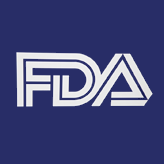FDA Expands Pembrolizumab Label for Melanoma
The FDA recently expanded its approval of pembrolizumab (Keytruda) to include the initial treatment of patients with unresectable or metastatic melanoma.
The FDA has expanded its approval of pembrolizumab for melanoma

The US Food and Drug Administration (FDA) recently expanded its approval of pembrolizumab (Keytruda) to include the initial treatment of patients with unresectable or metastatic melanoma. In 2014, pembrolizumab was approved for patients with unresectable or metastatic melanoma who progressed after treatment with ipilimumab and, if BRAF V600–mutation positive, a BRAF inhibitor.
According to the FDA website, this most recent approval was based on evidence from two clinical trials.
The first trial, KEYNOTE-006, was published last year in the New England Journal of Medicine. The phase III trial randomly assigned 834 patients to pembrolizumab 10 mg/kg every 2 weeks, pembrolizumab every 3 weeks, or four doses of ipilimumab 3 mg/kg every 3 weeks.
At 6 months, patients assigned both doses of pembrolizumab had almost twice the progression-free survival rate compared with patients assigned to ipilimumab (47.3% for pembrolizumab every 2 weeks and 46.4% for pembrolizumab every 3 weeks vs 26.5% for ipilimumab). As compared to patients assigned ipilimumab, a significant improvement in progression-free survival was observed in patients assigned pembrolizumab every 2 weeks and every 3 weeks with hazard ratios (HRs) of 0.58 (95% CI, 0.46–0.72; P < .001) and 0.58 (95% CI, 0.47–0.72; P < .001), respectively. The median progression-free survival for pembrolizumab every 2 weeks was 5.5 months and every 3 weeks was 4.1 months compared with 2.8 months for patients assigned ipilimumab.
Patients assigned to pembrolizumab also had significant improvements in overall survival compared with ipilimumab (every 2 weeks: HR, 0.63; 95% CI, 0.47–0.83; P < .001 and every 3 weeks: HR, 0.69; 95% CI, 0.52–0.90; P = .004).
The second trial, KEYNOTE-002, was published last year in Lancet Oncology. This phase II trial included 540 patients with unresectable or metastatic disease that was refractory to prior ipilimumab and a BRAF inhibitor, if BRAF V600–mutation positive. The patients were randomly assigned to pembrolizumab 2 mg/kg or 10 mg/kg every 3 weeks or to the investigator’s choice of therapy. In this trial, patients in the pembrolizumab 2 mg/kg (HR, 0.57; 95% CI, 0.45–0.73) and 10 mg/kg (HR, 0.50; 95% CI, 0.39–0.64) arms had significant improvement in progression-free survival compared with investigator’s choice as assessed by blinded independent central review.
A safety analysis of all patients on these two trials showed that the most serious adverse events of pembrolizumab were immune-related reactions including pneumonitis, colitis, hepatitis, endocrinopathies, and nephritis.
The FDA recommended dose and schedule for pembrolizumab was 2 mg/kg every 3 weeks administered as an intravenous infusion until disease progression or unacceptable toxicity.